Decaffeinated coffee offers many of the same health advantages as regular caffeinated coffee, although specific research focused on decaf is somewhat limited. Also, decaf coffee is not entirely free of caffeine.
Coffee ranks among the world’s most consumed drinks. Many people appreciate coffee but want to reduce their caffeine intake for personal or medical reasons. For those individuals, decaf coffee provides a great alternative.
Decaf coffee is essentially the same as standard coffee, except the majority of the caffeine has been taken out.
This article examines decaf coffee in depth, reviewing its potential benefits and drawbacks for health.

What is decaf coffee, and how is it produced?
“Decaf” is an abbreviation for decaffeinated coffee. It refers to coffee made from beans that have had over 97% of their caffeine removed.
There are several techniques to strip caffeine from coffee beans. Common approaches use water, organic solvents, or carbon dioxide.
In solvent-based methods, beans are washed with the solvent until the caffeine is extracted, and then the solvent itself is eliminated.
Caffeine can also be removed using carbon dioxide or by passing water through activated carbon — a technique known as the Swiss water process.
Decaffeination takes place before roasting and grinding. Except for caffeine levels, the nutritional profile of decaf coffee is largely similar to that of regular coffee.
Depending on the process used, the flavor and aroma may become somewhat gentler, and the color might shift slightly.
This milder sensory profile can make decaf coffee appealing to people who are sensitive to the bitter taste and strong aroma of regular coffee.
Is decaf coffee truly caffeine-free?
Decaf coffee is not completely void of caffeine. It contains small, varying amounts of caffeine — typically around 2 milligrams (mg) per cup, though levels can be higher in some instances.
Even so, while not completely free of caffeine, the quantity present in decaf is generally very low.
Is decaffeinated coffee healthy?
Despite past criticism, coffee is largely beneficial for health.
Many of its favorable effects are attributed to its antioxidants and other bioactive compounds.
In Western diets, coffee is the single largest contributor of antioxidants, and decaf coffee shares in this contribution.
The primary antioxidants in both regular and decaf coffee are hydrocinnamic acids and polyphenols. Antioxidants neutralize reactive molecules known as free radicals.
This helps cut oxidative damage and may reduce the risk of conditions such as heart disease, cancer, and type 2 diabetes.
However, pinpointing the precise health effects of decaf can be challenging. Many studies evaluate coffee consumption without separating regular from decaf, and some omit decaf entirely.
Moreover, most of these investigations are observational and cannot prove causation — only an association between coffee intake and observed outcomes.
That being said, coffee — including decaf — is probably not as harmful as once thought. Below are some of the possible benefits.
Diabetes
Both regular and decaf coffee consumption has been linked with a lower risk of type 2 diabetes. Depending on study findings, each cup consumed daily might lower the risk by about 6% to 11%.
Still, other influencing factors like diet and physical activity that affect diabetes risk may not always be fully accounted for.
Learn more about coffee’s relationship to diabetes.
Mortality
Higher coffee intake has also been associated with reduced risk of premature death, including deaths from cardiovascular disease and cancer.
Similar associations have been observed in research that specifically compared decaf and caffeinated coffee.
Cognitive function
Some research suggests coffee may be linked to better cognitive performance.
However, a study comparing adults over 60 found the cognitive benefits were not clearly present with decaf. More targeted research is necessary to clarify decaf’s effects on brain health.
Cardiovascular health
A 2023 review concluded that moderate coffee consumption might lower the risk of heart-related problems like high blood pressure and heart failure, although study results are mixed.
Another study that compared caffeinated and decaffeinated coffee’s effects on blood pressure and heart rate found no meaningful differences between the two, implying similar impacts on cardiovascular function.
This indicates that when coffee positively affects heart health, the distinction between caffeinated and decaf may be minimal. Still, more work is needed to fully understand coffee’s overall influence on heart health.
Body weight
A 2019 review of 12 studies looked at coffee and obesity, suggesting coffee intake might produce a small decrease in body fat, particularly in men — potentially due to caffeine’s effects on fat metabolism.
Yet a 2021 review that examined waist circumference found varied results across different types of coffee.
Green coffee extract showed the biggest reduction (1.3% to 3.0%), while both caffeinated and decaf coffee showed modest reductions (0.3% to 1.6%).
However, one study observed an increase in waist circumference among some participants drinking decaf, so further research is necessary to determine decaf’s true effect on body shape and weight.
Mental health
A 2023 study using U.K. Biobank data indicated coffee could lower the risk of depression and anxiety, with two to three cups per day of ground, milk, or unsweetened coffee associated with the lowest risk.
A 2022 animal study showed both regular and decaf coffee might alleviate depression-like symptoms from sleep loss, reduce inflammation, and help balance gut bacteria. This points to mental health benefits of coffee where caffeine is not the sole active factor.
Although coffee contains polyphenols and other compounds that might counteract inflammation, oxidative stress, and reduced neurogenesis — factors linked to depression — few human trials have confirmed a direct connection between these compounds and lowered depression risk or symptoms.
One 2018 study found the decaffeination process does not substantially alter coffee’s protective association with depression risk. Still, more focused studies on decaf and mental health are needed.
Is decaf coffee healthier than regular coffee?
Overall, coffee — including decaf — may offer a range of health benefits. However, individual sensitivity to caffeine varies widely. For some people, a single cup may be too much, while others tolerate several cups well.
If you’re particularly sensitive to caffeine, decaf may be the preferable choice. If you still experience caffeine-related symptoms such as nervousness, anxiety, gastrointestinal upset, irregular heartbeat, or insomnia, switching to tea might be worth considering.
You might also want to restrict caffeine if you have certain medical problems or take medications that interact with caffeine. Likewise, pregnant or breastfeeding people are advised to limit caffeine, and those with anxiety or sleep disorders should reduce intake as well.
While tolerance differs by person, healthy adults are generally advised not to exceed about 400 mg of caffeine daily, roughly equivalent to four cups of coffee.
Frequently asked questions
Will decaf coffee keep me awake?
Although decaf contains much less caffeine than regular coffee, it can still interfere with sleep. A 2018 study reported that decaf increased alertness compared with a placebo.
Is decaf coffee bad for children?
Coffee can stimulate digestive activity. A 2022 study suggests even decaffeinated coffee may serve as a gastric stimulant in pediatric patients.
However, this does not mean that coffee is safe for children to consume routinely. In general, coffee intake is not recommended for children and adolescents.
The bottom line
Coffee is among the healthiest drinks available, rich in antioxidants and linked to a lower risk of multiple serious diseases.
Yet some people cannot tolerate caffeine. For them, decaf offers a way to enjoy coffee’s flavor and many of its benefits without most of the caffeine’s side effects.
Decaf preserves most of regular coffee’s health-promoting properties while minimizing caffeine-related adverse effects.



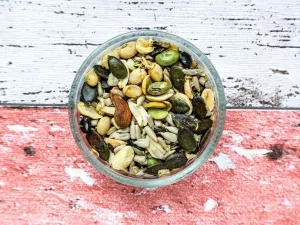
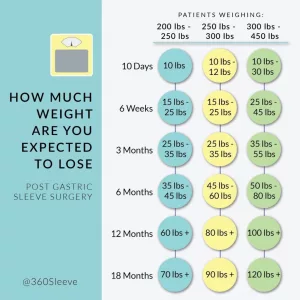


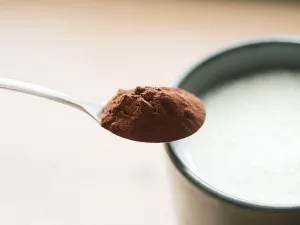



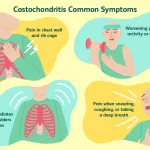



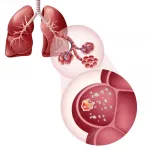







Leave a Reply
You must be logged in to post a comment.